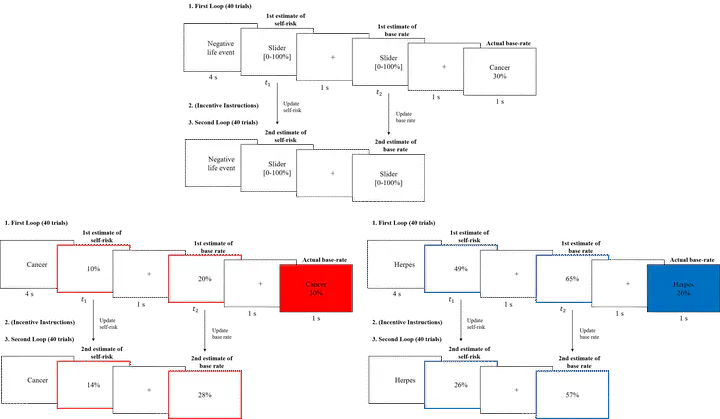Money can't buy realism: Incentives do not interfere with the optimistic update bias
 Experiment task paradigm (based on Garret and Sharot, 2014)
Experiment task paradigm (based on Garret and Sharot, 2014)Abstract
The present study examines whether individuals exhibit elective updating behaviour when estimating (1) their own risk of incurring a negative life event and (2) the risk of that event happening on average to the population. Furthermore, it is investigated whether an incentive can prevent individuals from selective belief updating regarding their estimate of the population risk. For this study, seventy-four university students participated in an experiment in which an altered version of Garret and Sharot’s (2014) task paradigm was applied. It was found that participants exhibited selective updating such that they updated their beliefs more after having received desirable information than after having received undesirable information. This is true for their self-risk estimate and partially true for their estimates of the population risk. The incentive treatment did not interfere with the optimistic update bias. However, findings suggest sex differences in processing negative stimulus material. Also, an alternative analysis method is introduced.
References
Garrett, N., & Sharot, T. (2014). How robust is the optimistic update bias for estimating self-risk and population base rates. PLoS ONE, 9(6), e98848. doi: 10.1371/journal.pone.0098848